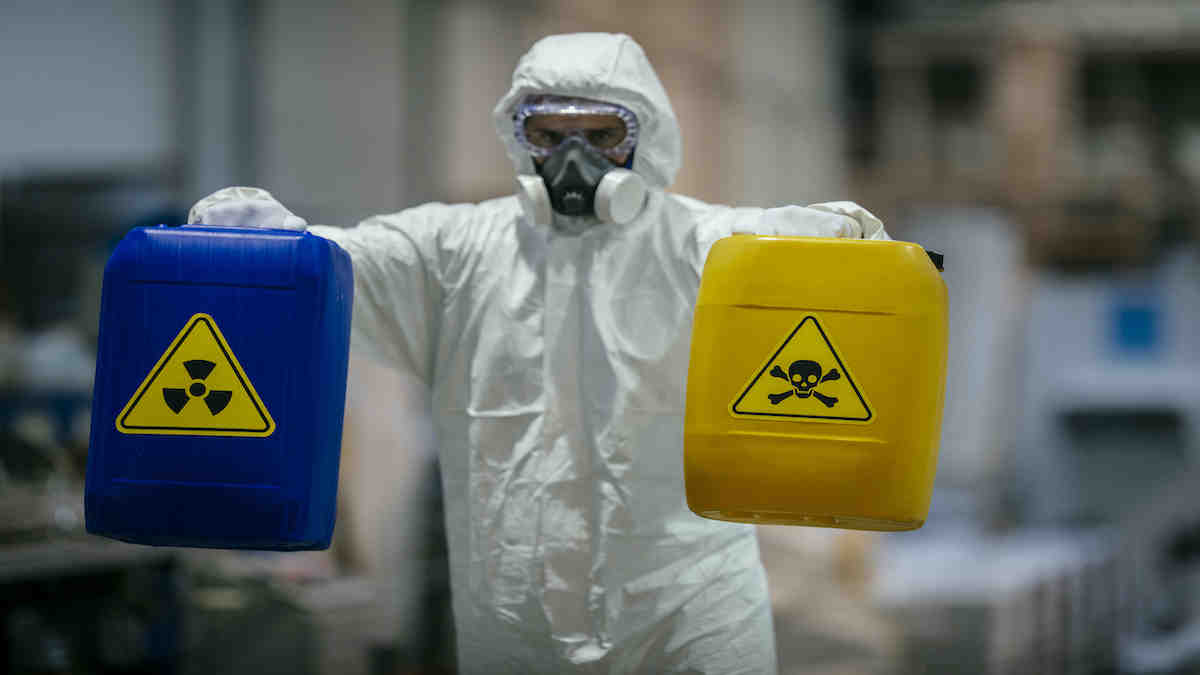IPO Watch: Dangerous chemicals stock DGL makes ASX debut, shares rise 8pc

Chemicals company DGL made its debut on the ASX today. Picture:Getty Images
Chemicals, logistics and waste management company, DGL Group (ASX:DGL), has made its debut on the ASX today, after raising $100 million in the IPO for a market cap of around $250 million.
Shares in DGL, which is an acronym for “Dangerous Goods”, were floated at $1, and closed higher by 8 per cent at the closing bell to $1.08.
The Auckland-based trans-Tasman company was founded in 1999, and currently employs more than 280 people serving a 1,300 strong client base across ANZ.
Beginning and growth path
DGL was established in 1999 by current CEO self-made Kiwi rich lister Simon Henry, who still retains a 57 per cent stake in the company after the float.
Speaking exclusively with Stockhead, Henry explained that he made his fortune initially in the honey and property industries, before building the chemical logistics empire.
“Back in the 80s, our family had hit some connections with the honey industry down in the South Island, and that’s what gave me the initial capital and start of life in business,” he explained.
“The honey business taught me to work hard and manage cash flow, and we managed to sell the business and moved into property investments, which then led into chemical logistics,” Henry added.
Henry built DGL into the company it is today through organic growth, as well as a series of mergers and acquisitions.
For example, the company acquired chemical businesses Hardman Chemicals and Chem Pack over the past year, and consolidated those businesses into the DGL Group.
As a result, DGL now offers its services in three interconnected vertical business lines, which include chemical manufacturing, logistics, and waste management.
The chemicals business in ANZ is estimated at $40 billion by 2026, where DGL provides chemical formulations to a range of industry sectors as well as supplying to end-users.
The company formulates and makes over 1000 different chemical products across sites in Australia and New Zealand, and earns half its revenue from this segment.
The logistics segment is where DGL uses its specialist skills to store and handle dangerous chemicals that could otherwise result in spills, contamination, and even explosions.
This segment contributes around 15 per cent to its total revenue, where it owns warehouses stretching from Perth to Christchurch covering over 100,000 tons of capacity.
Finally, the waste management and recycling segment provides services such as industrial waste collection, transport, disposal, as well as recycling.
This market includes the disposal of hazardous liquids, where for example, 159,000 tonnes of lead acid batteries in Australia had reached end-of-life in FY20.
Around a third of DGL’s revenue is earned through this environmental solutions segment.
Customers and competitors
DGL has a diverse customer base ranging from small and medium sized enterprises, to big chip multinational corporations.
It serves 1,300 customers across a range of sectors including agriculture, mining, automotive, and food amongst others.
But surely, this would attract other competitors into its market and steal a slice of the pie?
Henry says that competion does exist, but they are fragmented and do not offer the one-stop shop business model that DGL is offering.
“Some of the competitors touch on the fringes of what we do, but I can’t think of any other company, especially listed ones, that provides such a comprehensive range of services as we do to the chemical industry,” Henry argued.
Looking ahead
For the time being, the company will focus on the growth opportunities presented in the ANZ market, but has not ruled out an international expansion in due course.
Henry said that DGL has been in discussions with various other companies, including those in the US.
The company had already announced that part of the $100 million raised in the IPO would be used to pursue growth opportunities, including strategic M&A opportunities.
Target revenue stated in the prospectus is $190m for the full year FY21, which is expected to grow to $210 million by FY22.
“But keep in mind that this forecast doesn’t factor in the potential revenue to be generated from the $100 million that we raised,” reminded Henry.
As a comparison, in FY20, DGL made $180 million in revenue.
For potential investors, Henry says that DGL is a solid company with a solid track record and balance sheet.
“We have a real estate worth $157 million in net tangible assets, and we’ve just raised $100 million.”
“So we’re a solid and profitable company that’s growing on its volume throughput in excess of 20% per annum, compounded for 20 years. I’m optimistic and expect that kind of growth to continue post-IPO,” Henry predicted.
Related Topics
UNLOCK INSIGHTS
Discover the untold stories of emerging ASX stocks.
Daily news and expert analysis, it's free to subscribe.
By proceeding, you confirm you understand that we handle personal information in accordance with our Privacy Policy.








